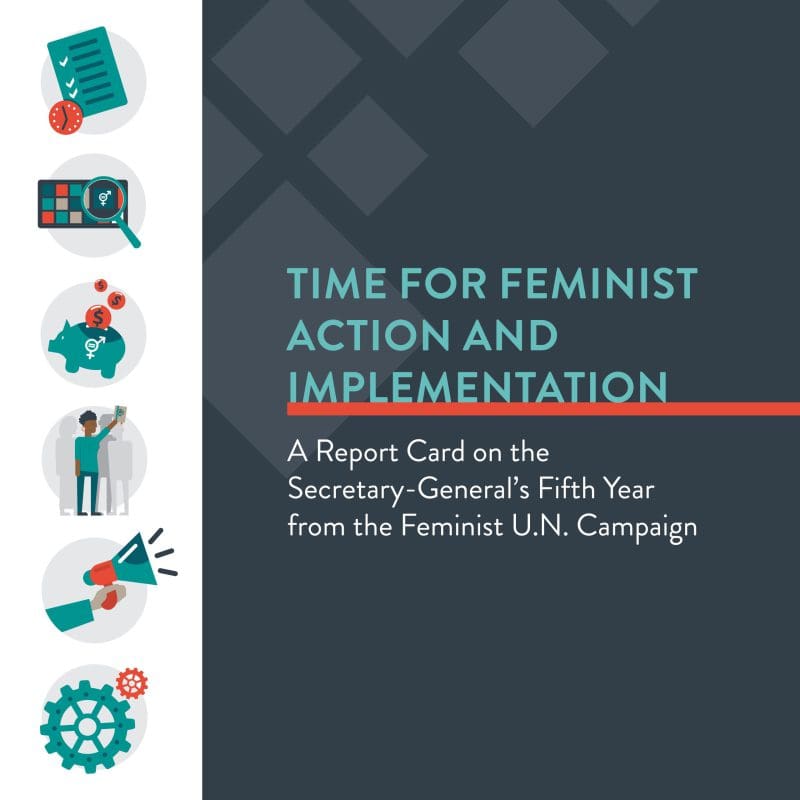
Time for Feminist Action and Implementation
A Report Card on the Secretary-General’s 5th Year from the Feminist U.N. Campaign
2022
The Feminist United Nations (U.N.) Campaign brings together leading feminist thinkers in civil society, philanthropy, and academia, as well as former U.N. staff around a shared agenda for women’s rights and gender equality at the U.N. Since 2017, our Campaign has been issuing annual report cards, grading U.N. Secretary-General António Guterres on his progress towards our recommendations for a more feminist U.N. system based on six criteria outlined in the report.
civil society, philanthropy, and academia, as well as former U.N. staff around a shared agenda for women’s rights and gender equality at the U.N. Since 2017, our Campaign has been issuing annual report cards, grading U.N. Secretary-General António Guterres on his progress towards our recommendations for a more feminist U.N. system based on six criteria outlined in the report.
In the final year of his first full term, we found the Secretary-General’s progress towards implementing a more gender-equitable United Nations slowed in some areas. The Secretary-General’s overall grade dropped to a “B-.” A return to the same grade we issued in 2018 and 2019—demonstrating a significant need for improvement in his second term.
Key Findings
- While the Secretary-General’s speeches on gender—such as those delivered at landmark women’s rights events—are objectively strong, they are devoid of actionable commitments or accountability beyond the progress toward gender parity at the senior-most levels in the U.N.
- The closed-door process for the selection of UN Women’s new Executive Director, Sima Sami Bahous, was considered a major misstep on the part of the Secretary-General.
- We applaud the centrality given to gender equality and human rights in the COVID-19 Response and Recovery Fund. The annual report reveals that 69 percent of programs funded through its second call for proposals were GEM 3—significantly exceeding its target of 30 percent.
- The COVID-19 Response and Recovery Fund’s annual report reveals that 69 percent of programs funded through its second call for proposals were GEM 3—significantly exceeding its target of 30 percent.
- Process has stalled on responding to sexual harassment, exploitation and abuse in the U.N. system, and for a lack of transformative leadership on human rights and intersectionality. Key informants reported that staff remain disillusioned with the leadership’s dedication to changing the U.N.’s macho culture of impunity, are profoundly mistrustful of reporting and justice mechanisms in the system, and are fearful of retaliation.
- Guterres still does not publicly advocate for more member state budgetary support to UN Women.
- The Secretary-General makes several commitments to advancing gender equality in his Our Common Agenda publication, and leaves room for gender integration in some key areas. We encourage the Secretary-General to be fully transparent in the implementation of these commitments moving forward.
Related Materials
Ahmed, S. and Papagioti, F. (2022). Time for Feminist Action and Implementation. Washington, DC. International Center for Research on Women.
© 2022 International Center for Research on Women
